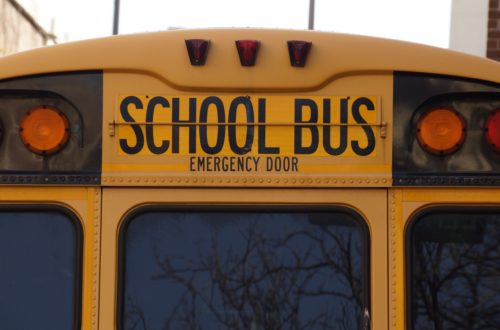Exit Plan Cultivates a Healthy Season of Leaving
By Amanda Trimillos
In the Season of Leaving, parents, teachers, and students work together to build an exit plan to cultivate a smooth transition from one school to another. A strong exit plan takes into account all the events, tasks, and actions leading up to the student’s last day of class, ensuring a healthy transition academically, socially, and emotionally.
If military orders require a student to leave before the school year ends, the student might miss final exam and project due dates or end-of-year celebrations. An exit plan helps the student-advocacy team to recognize potential conflicts and meet them proactively.
For any departure date, it’s essential for parents, teachers, and students to build the exit plan together. Elementary school students may have only one teacher, while middle and high school students will have several teachers and classes. A school counselor or lead teacher can help coordinate and consolidate all important dates, expectations, and events. A strong exit plan begins with team conversations and questions to consider on these key topics:
Exit Date
The date of a move is the starting point for building the exit plan, whether the student will remain until the last day of class or leave early. Talk about all important dates, such as packing household goods, family events, and farewell parties. Questions to consider:
- When is the student’s last day of class?
- When is the earliest a student can depart and still receive credit for her courses?
- What activities, field trips, or school celebrations need to be considered?
Paperwork
As soon as orders are official, parents should initiate the process of withdrawing students from school. The Interstate Compact on Educational Opportunity for Military Children has provisions to allow military families to request hand-carried transcripts to avoid delays in enrollment at a receiving school. Questions to consider:
- What are the school’s withdrawal policies and requirements?
- How can parents obtain paperwork and transcripts to hand-carry to the new school?
- What paperwork does the receiving school require for enrollment?
Education Binder
Review and organize the contents of the student‘s Education Binder. Questions to consider:
- What materials should be added to the binder before departure?
- Does the binder include textbooks and curricula the student has used?
- Request teacher-to-teacher letters from sending to receiving educators.
Learning timeline
Discuss any learning gaps and academic challenges. Teachers can tailor final assignments specifically to the student’s needs. Parents and students can focus on areas needing attention. Questions to consider:
- Is information available about programs and curricula at the receiving school?
- Does the student need to focus on particular areas of skill or knowledge?
- Ask teachers to build a review pack to help the student build and maintain learning during the move.
Assignment due dates
Discuss what assignments and projects the student must complete before departure. Perhaps there are assignments the student can miss in order to focus his attention on the upcoming PCS. Questions to consider:
- What are the due dates, and do they need to be adjusted?
- What supplies will the student need to complete projects and assignments?
- Are those supplies and projects set aside at home so they won’t be packed with household goods?
Final exams
Planning ahead is essential when it comes to final exams and standardized testing. Special approval or waivers may be needed to provide alternate dates for state-mandated tests. Check the calendar as far ahead as possible to plan for any necessary accommodations. Questions to consider:
- Is there conflict between departure dates and final exams or end-of-year testing?
- What is the district policy for adjusting test dates for military students with conflicts due to PCS orders?
- Who is the point of contact for requesting date changes?
Good goodbyes
Last, but certainly not least, the exit plan should include opportunities for students to say good-bye to friends and teachers. Saying goodbye is important in the social and emotional component of departure. Ask and act on the student’s preferences as much as possible, and make goodbyes a priority in the busy Season of Leaving. Questions to consider:
- What class or school events does the student want to attend?
- How and when would the student like to say goodbye to classmates and peers?
- Are there some goodbyes the student would like to say one-on-one? In a large group?
A solid exit plan recognizes what the student needs for a strong Season of Leaving and allows the student’s support team to agree on how to meet those needs. The plan balances school responsibilities and time with friends with practical concerns, such as packing up household goods and cleaning out school lockers. The exit plan ensures projects and assignments arrive promptly on the teachers desk ready for grading, rather than accidentally packed in the back of a moving truck. The plan also offers the student opportunities for saying goodbye to friends, mentors, and classmates.
The exit plan brings closure academically, socially, and emotionally for the student in the Season of Leaving, preparing the way for success in the coming Season of Arriving.
Amanda Trimillos, EdD, is a military spouse, mother, and National Board-Certified Teacher with extensive experience teaching military students in the United States and overseas. She is coauthor of Seasons of My Military Student: Practical Ideas for Parents and Teachers and wrote the essay “School Choices and Changes” in Stories Around the Table: Laugher, Wisdom, and Strength in Military Life.


